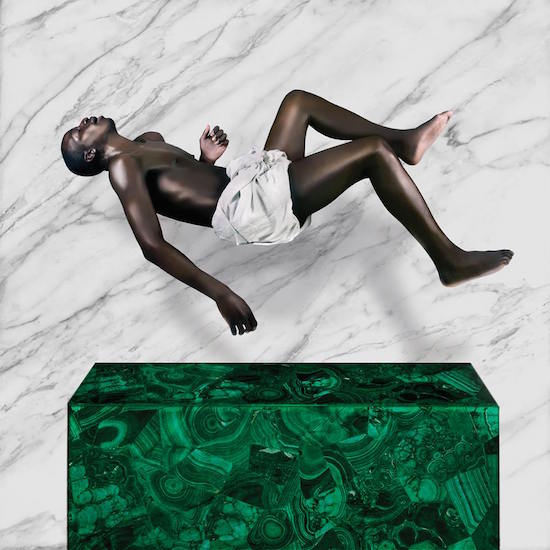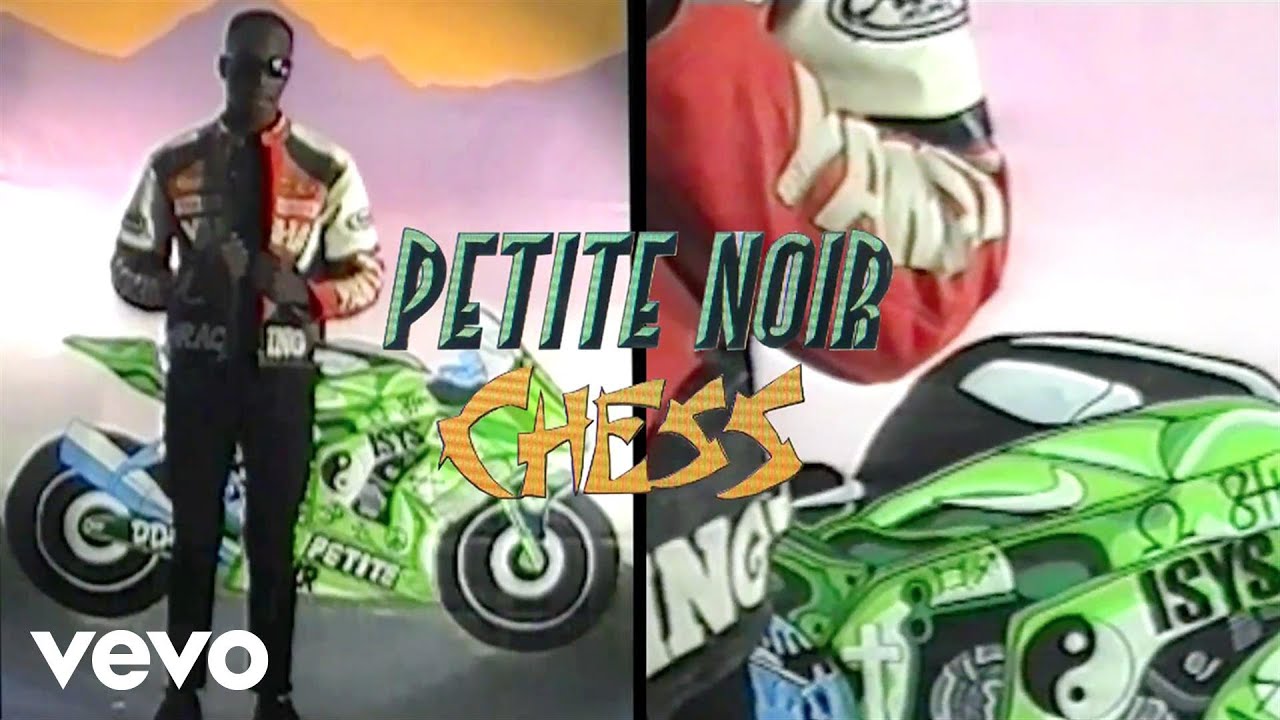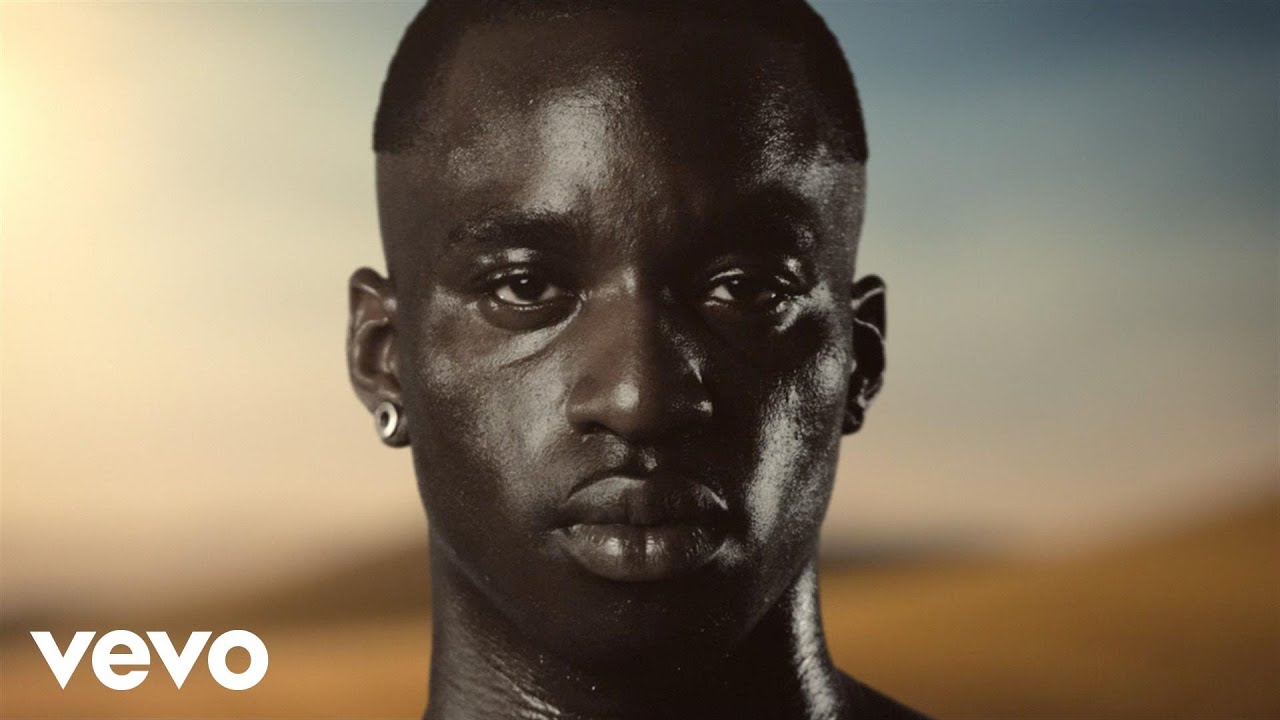"It’s a good tool, instead of being violent and stupid," says Yannick Ilunga, reflecting on the potential of music. It’s a fairly typically broad-reaching statement from the Cape Town-based musician who records as Petite Noir, the type that crops up frequently when he’s discussing his distinctive brand of pop, exemplified on his The King Of Anxiety EP earlier this year, and refined further on his recent debut album, La Vie Est Belle/Life Is Beautiful.
The assertion is a key one for Ilunga, though, tapping into the sense of music being a constructive force, chiming with the new aesthetic he’s developing through his work. ‘Noirwave’, as he calls it, brings African musical traditions together with New Wave influences with shimmering results. ‘Freedom’, from La Vie Est Belle/Life Is Beautiful, for example, lays glacial, almost post-punk guitar lines over a stuttering drum beat, while ‘Seventeen (Stay)’ is a sprawling seven-minute piece of crystalline pop set against a backdrop of traditional percussion, a seamless blend of South African music with ’80s reference points.
It’s perhaps unsurprising that Ilunga’s output should have such a wide-ranging scope, given that his musical progression has followed some varied directions. Starting out playing in church, he’s had stints pursuing metal and electronics, even working with luminary Soweto MC, Spoek Mathambo. Those early experiences laid the roots for his work, he explains: "My involvement in church has definitely had an impact upon me as an artist. That’s where I learned to play guitar. Where I am today all stems from that. Church had a very big impact on me, and on my life, and the album particularly, the way it sounds." Another, seemingly opposite influence came in the form of Green Day’s snotty punk classic, Dookie, courtesy of his brother’s record collection. "That album made a big impact," he says, "It was at a time when I was exploring music, and you wouldn’t expect me to be going in those kinds of directions."
Certainly you’d struggle to hear the imprint of ‘Basket Case’ on it, but La Vie Est Belle/Life Is Beautiful, recorded in London with Oli Bayston from Boxed In and Leon Brichard from Ibibio Sound Machine, bears the marks of an album touched by varied influences, shaped equally by Kanye West and Fela Kuti. Where The King Of Anxiety had a cold sheen to it, shot through with Ilunga’s forlorn, falsetto vocals, the album feels more upbeat, songs such as lead single ‘Down’, ‘Just Stay’ and ‘Best’ brimming with the noirwave fusion. The overall sound is deeper and warmer, too, with Ilunga complementing that upper register with a magnificent baritone.
Personal experiences again play a central role to the album (the lyrics for The King Of Anxiety standout ‘Chess’, which here reemerges as the album closer, were the remnants of a Skype argument with his girlfriend), though Ilunga hopes that this stance is turned outward to include the listener. Speaking about how his music has developed between the EP and album, he says: "We progress as human beings. Art imitates life. A lot of the time the music we make, because we’re progressing through life and experiencing life, the music becomes better. It’s very personal to me. You’ll find it personal to you, and relatable."
Crucially, at the core of the album is noirwave. "It’s just a natural thing. It’s developing the more I’m developing, and the more it catches on. It has a lot to do with sound too. It’s a new way of doing things," says Ilunga. While the concept has been talked about as a sonic blueprint and a scene, Ilunga sees it as something bigger than both. "Yeah, noirwave is more than just a sound, although my music does embody the noirwave sound," he explains. "It’s more though – for me it’s a progressive social movement that’s rapidly breaking out of the pan-African underground, emerging in the creative output of inspiring minds from across the globe. It challenges the old perceptions of Africa and champions the new, forward-thinking ideas coming from the most progressive African creatives."
Ilunga has also previously talked of how the implications of the movement have a politically motivated edge in terms of overcoming racial boundaries: "The way we’re trained to think is that everything that’s white is forward-thinking." This side of the aesthetic perhaps reflects the work Ilunga’s produced with Yasiin Bey, formerly Mos Def, and now based in Cape Town. An early collaborator, Bey featured on a remix of ‘Till We Ghosts’, with Ilunga describing him as "an activist [who] taught me a lot about what’s wrong with the world". In the same interview, Ilunga remarked that his music offered a means of expressing "all the frustration that’s been creeping up on me, the craziness of being a black dude", adding that his debut album would be "a lot angrier, a lot louder, a lot more political", and this torrent of feeling emerges on the album on ‘Colour’, with its reprise calling for "change", and ‘Just Breathe’ opens with the line, "Say the word/ She said, breathe the change you want to see". "I’ve definitely become more politically aware in recent years, but the message in music isn’t one of negativity," says Ilunga, reflecting on the point. "I don’t think the words on the record are about focusing on what’s wrong, they are about focusing on the positive, what’s right, what you can do… being the change yourself. It’s empowering."
It’s this sense of forward progression that comes through most both in his music and in speaking to Ilunga, even down to what’s he taken from working with his celebrated collaborators. "Working with such important artists such as Spoek and Yasiin I’ve learned a lot about identity, and the relationship between your identity and your music. Yasiin taught me a lot about freedom; to mean freedom of speech, freedom to transcend barriers and boundaries."
His music is a frequently joyful collision of influences, one which is treading its own defiantly upbeat, constructive path. "Seeking a middle way between hope and frustration," he says of the intent behind his work. "Music is a vessel for that, a vessel for personal experiences." What does he hope to achieve with this vessel? "The only message I want to spread is one of positivity," he says, using a word that crops up frequently. "Of course lyrics are always open to interpretation, but it’s the positivity that I want you to be left with."
La Vie Est Belle/Life Is Beautiful is out on September 11 on Double Six. Petite Noir begins a European tour on March 3, 2016 at The Laundry in London; for full details and tickets, head here




